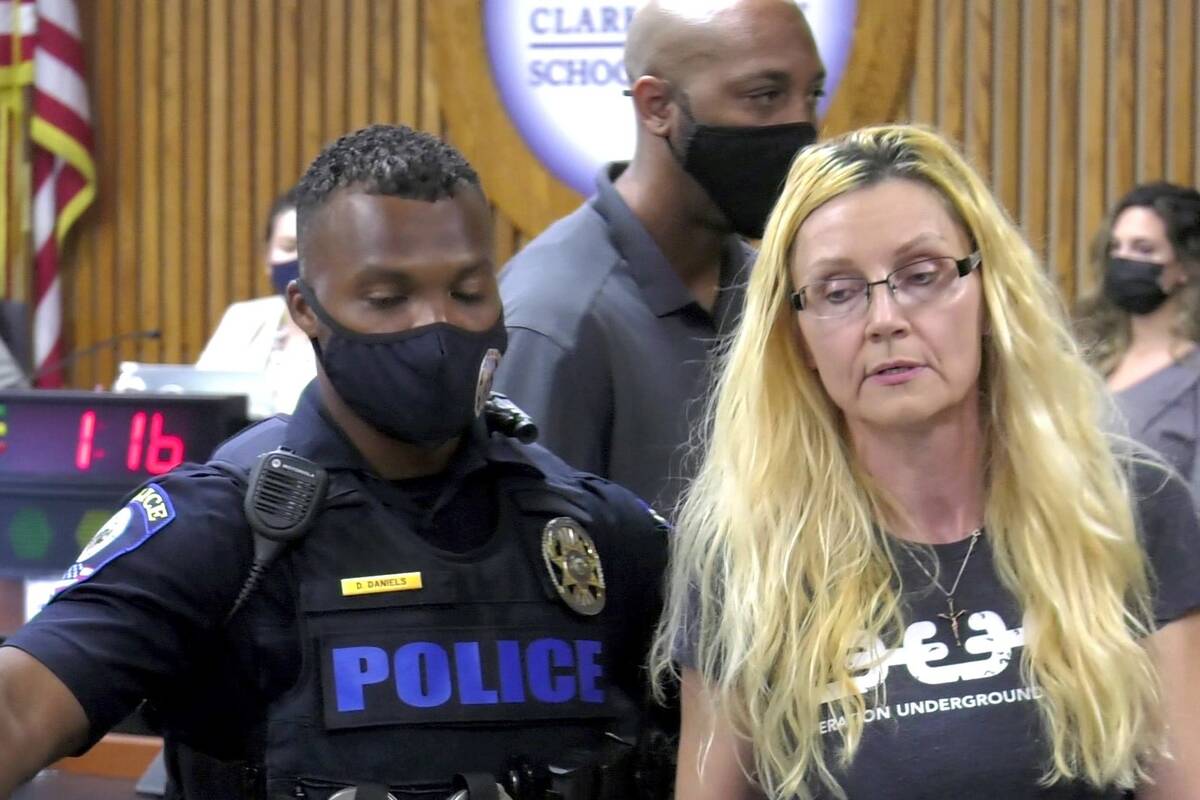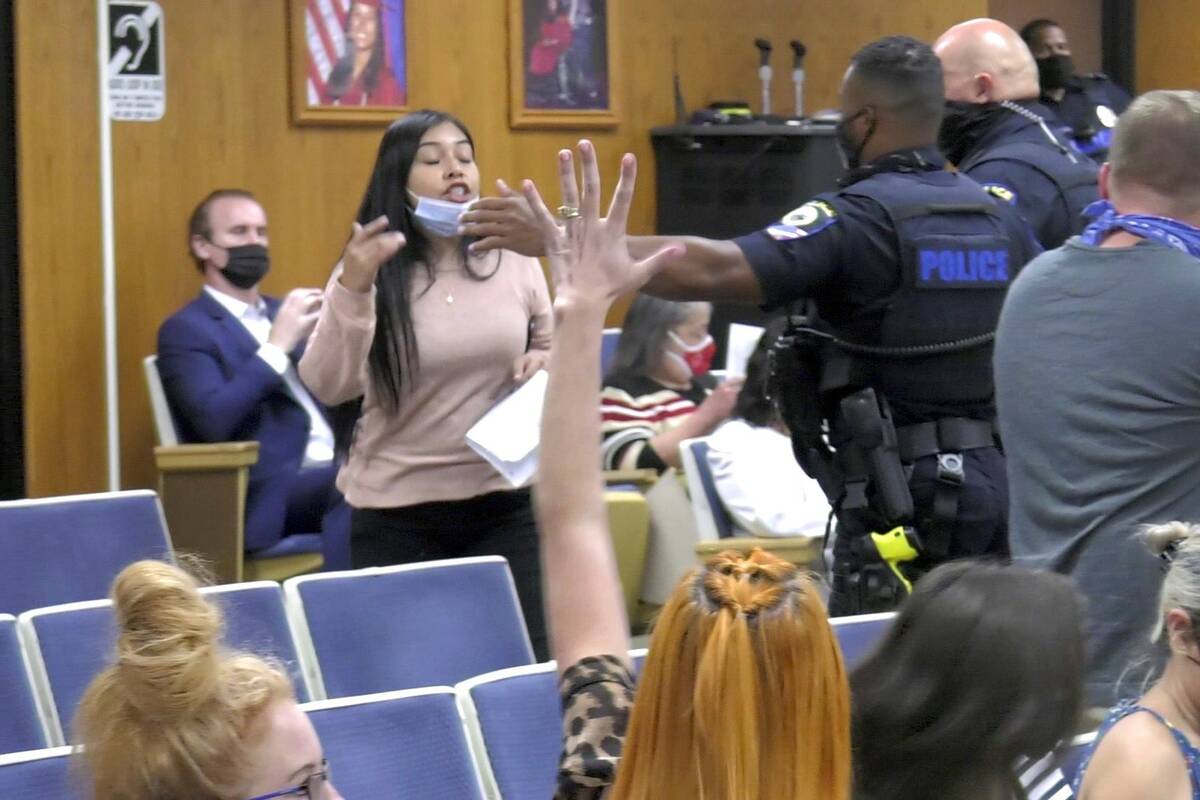School Board OKs plan for spending $770M in COVID-19 funding
The Clark County School Board unanimously approved on Thursday an initial plan for how to spend more than $770 million in federal coronavirus relief money over the next three years.
Superintendent Jesus Jara said the presentation to the School Board was scheduled for discussion only, but it was changed to an action item because it requires a vote due to a regulation involving grants.
At this point, it’s the initial plan for Elementary and Secondary School Emergency Relief, or ESSER III, money, Chief of Staff Christopher Bernier said, noting it can be amended later.
The ESSER III money isn’t yet available to the school district, and an initial plan is due Friday to the Nevada Department of Education, he said.
“We expect (the state) to have comments, concerns, revisions and requests for the clarification over the next several weeks,” Bernier said.
The plan also has to be submitted to the federal government in November.
Bernier gave an overview of the federal money the district has received. That includes $133.5 million from ESSER I, $353.7 million from ESSER II and $777.8 million from ESSER III.
More than 60 community input conversations were held in July and August in partnership with local organizations to help develop ESSER III spending priorities.
Community feedback was also sought this month via a survey that more than 13,000 people responded to.
A community listening tour also continues through the end of September, Bernier said.
Midway through Bernier’s presentation, he was interrupted by a man who was yelling at and cussing out the School Board. The man was escorted out of the room.
He said student success will be the district’s primary focus in the plan, totaling more than $533 million.
Spending priorities include expanding preschool to ensure every campus has at least one general education preschool classroom, literacy professional learning for employees, instructional materials for English language arts and social emotional learning, six-week summer career courses and paid professional credentials for students.
Others include mental health services, upgrading technology, community partnerships for learning acceleration and supports for those most impacted by the pandemic, a direct allocation to elementary schools to use to address pandemic learning loss and an English language learners endorsement for teachers seeking it.
As for other areas, funding will be used in areas such as a teacher leadership pathway, efforts to allow paraprofessionals to earn a teaching credential, and a pipeline into administration for Black and Latino male educators.
The board heard public comments after the presentation, including from some educators who expressed concerns about funding priorities.
Teacher Sarah Comroe asked why secondary schools wouldn’t be given a direct allocation since they also know what students need.
Also, she asked why some of the federal money couldn’t go toward dropping THT Health — which provides health insurance for teachers and has faced financial woes — and “going with “literally anything else.”
The board also heard a presentation about school district employee recruiting efforts, but didn’t take action.
The board returned to its usual meeting location Thursday at the Greer Education Center after a few meetings that drew large crowds were held at the Clark County Government Center. Attendance numbers were significantly lower at this week’s meeting, with about 100 people in the audience.
Three people were escorted out of the room after disrupting the meeting, or speaking on incorrect agenda items and continuing to talk after their microphone was cut.
Public comments
Public comments at the Thursday meeting included opposition to the employee COVID-19 vaccination mandate the school board approved last week and educators expressing concerns about working conditions and THT Health.
A public commenter who wasn’t wearing a mask and called the board “incompetent schmucks” was escorted out of the room. Some in the audience yelled out that she didn’t need a mask while she was making a public comment.
Amy Marshall said she believes there are two goals that can be agreed on – keeping students in school and trying to recruit additional school employees.
But she said about the employee COVID-19 vaccination mandate, “I believe a mandate is premature and irresponsible.”
Terri Shuman, a district employee, asked the board to reconsider the vaccination mandate and she asked for testing to be considered as well.
She said she has never been angrier once she came to the conclusion a decision had already been made behind closed doors, even after more than 85 people spoke against the mandate.
“Thank you, Trustee Ford, for voting with your heart,” she told Trustee Danielle Ford, who was the lone trustee who voted against the mandate. Trustee Katie Williams wasn’t in attendance for the vote.
Vicki Kreidel, a second-grade teacher and president of the National Education Association of Southern Nevada, said the district is doing nothing to support educators in buildings while a world crisis is underway with the pandemic.
All educators want to do is teach, she said, noting they don’t enjoy watching the district do things to add to the workload and stress.
Mandates don’t help with allowing educators to do their jobs better, Kreidel said.
Emily Anderson, who said she was once a school district new educator of the year, noted Superintendent Jesus Jara needs to show educators with actions — not words — that he appreciates them.
She said educators need reliable health care and the pay they deserve, or she fears the district will have a much larger problem on its hands than masks or vaccines.
Contact Julie Wootton-Greener at jgreener@reviewjournal.com or 702-387-2921. Follow @julieswootton on Twitter.












































